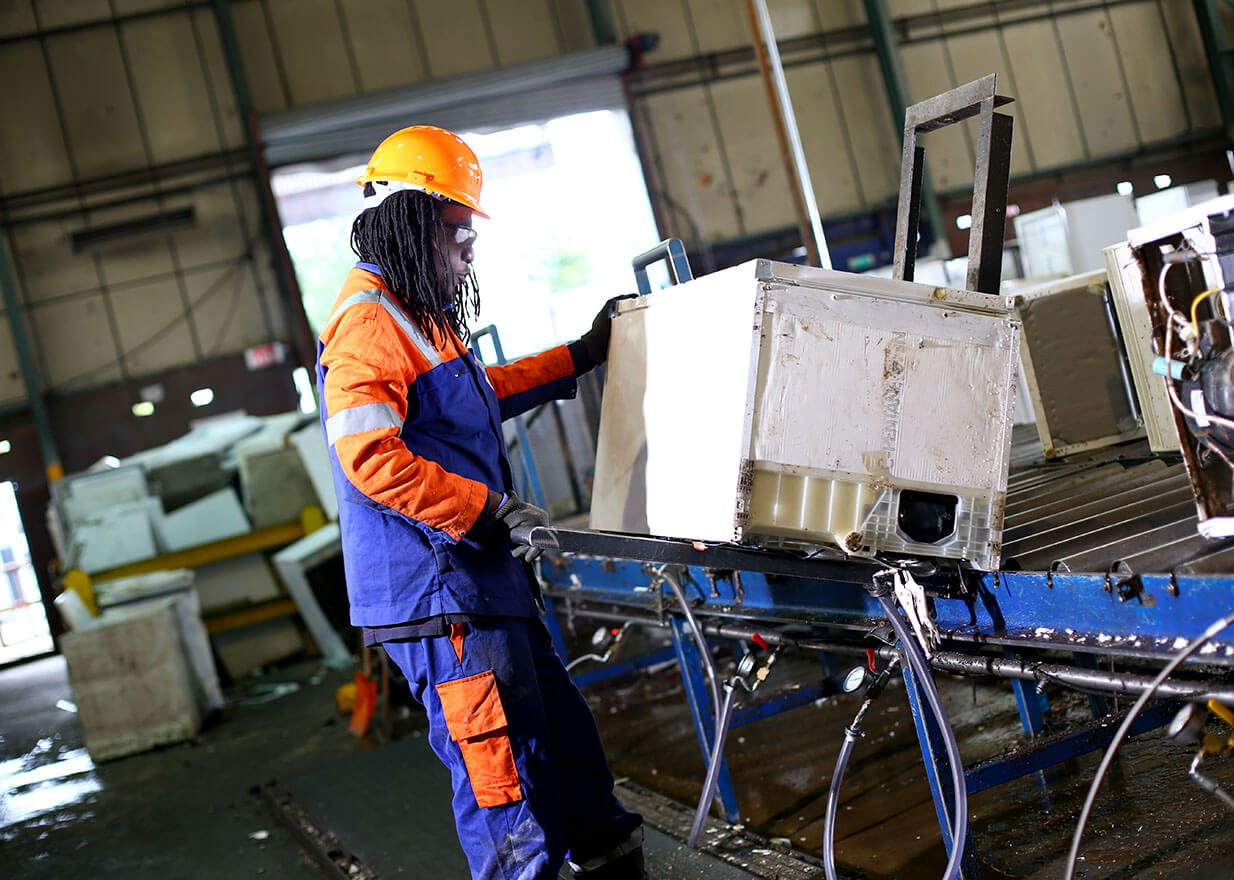CHOOSE
A DIFFERENT TERRITORY

We are licensed to accept a range of small electrical goods, large domestic appliances and fridges, collectively referred to as WEEE.
Just like many of the other materials that we accept, WEEE requires specialist processing. We hold an AATF (Approved Authorised Treatment Facility) licence so we can accept goods from local authorities, take-back schemes, producer compliance schemes, as well as the general public. We also hold an AE (Approved Exporter) licence that allows for the compliant export of the materials derived from our sites.
The items we accept include:
Cooling equipment is processed through our dedicated fridge plants in London and the Midlands. Ensuring the responsible and compliant treatment of these materials is a two-stage treatment process. Firstly, all compressors are degassed then the carcasses are processed through fully enclosed shredders, which remove gas from the foam and separate the materials.
Our customers include high street and online retailers, waste companies and manufacturers who are responsible for the compliant recycling of their electrical products.
We're proud to have the most sustainable, technologically advanced fridge recycling plant in the UK. Find out more by clicking the button.
Contact our Buying Team to find out how we can recycle your waste electricals and large domestic appliances, including fridges and freezers.